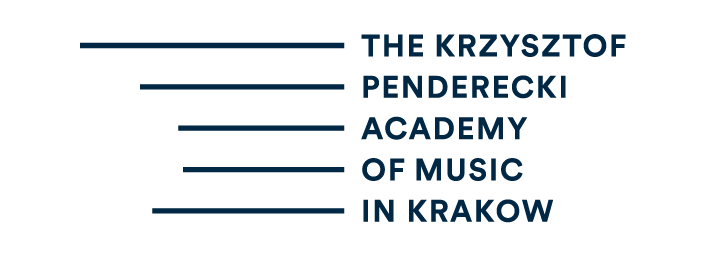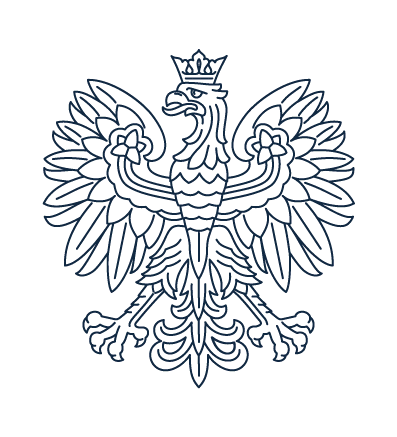DETAILED PROGRAMME (REPERTOIRE) REQUIREMENTS
NOTE: The Examination Boards reserve the right to select works or parts thereof during the entrance examination.
DETAILED REQUIREMENTS
FOR THE UNDERGRADUATE (BACHELOR’S DEGREE) PROGRAMME
A two-stage examination; candidates who have passed the first stage are admitted to the second stage.
Stage 1: Major exam
an examination in playing an instrument – practical
Supplementary exam
ear training – an oral examination
Stage 2: Supplementary exam
interview – an oral examination
Programmes:
Playing the harpsichord
A candidate may perform the programme on the harpsichord, piano or organ.
Programme (repertoire) for candidates taking a harpsichord exam:
- a chosen piece (or pieces) by J.S. Bach (approx. 10 minutes);
- a chosen piece (or pieces) by French harpsichordists;
- two sonatas by D. Scarlatti or a piece of virtuoso character
- a free-choice piece
The programme (approx. 25 minutes) may be performed from memory or from sheet music.
Programme (repertoire) for candidates taking a piano exam:
- a chosen piece (or pieces) by J.S. Bach (approx. 10 minutes);
- D. Scarlatti – two sonatas;
- a classical sonata;
- a free-choice piece.
The programme (approx. 25 minutes) may be performed from memory or from sheet music.
Programme (repertoire) for candidates taking an organ exam:
- A pre-Bach piece (a larger form from the North German School);
- J.S. Bach – Prelude and fugue or Toccata and fugue or Fantasia and fugue;
- A 19th- or 20th-century piece;
- The programme (approx. 25 minutes) may be performed from memory or from sheet music.
The Academy does not provide the recording assistance.
Playing the lute
The candidate may perform the programme on any lute-family instrument (the renaissance or baroque lute, the renaissance or baroque guitar, archlute, theorbo/chitarrone) or on the classical guitar.
Programme (repertoire) for candidates taking a lute exam:
The candidate should present a programme from the renaissance or baroque repertoire (the use of more than one instrument is not required).
Programme (repertoire) for candidates taking a classical guitar exam:
- a guitar transcription of a suite/ sonata;
- a 19th-century composition;
- a free-choice piece (if the above pieces were shorter than 20 minutes).
The programme (approx. 20 minutes) may be performed from memory or from sheet music.
Playing the baroque violin
The candidate may perform the programme on the baroque or modern violin.
- Two contrasting movements from any 18th-century sonata, suite or fantasia for violin with basso continuo;
- Two movements from any 18th-century sonata, partita or fantasia for solo violin;
- A piece freely chosen by the candidate
The programme (approx. 25 minutes) may be performed from memory or from sheet music.
Playing the baroque cello
The candidate may perform the programme on a baroque or modern instrument.
Programme (repertoire) for candidates taking a baroque cello exam:
- J.S. Bach – any movement from one of the suites for solo cello
- a baroque sonata
- D. Gabrielli – ricercar
- any piece (or a part thereof) freely chosen by the candidate
The programme (approx. 25 minutes) may be performed from memory or from sheet music.
Programme (repertoire) for candidates taking a modern cello exam:
- J.S. Bach – any movement from one of the suites for solo cello
- a sonata from the baroque or early classical period (J.B. Bréval, L. Boccherini, J. Duport)
- an etude or caprice (J. Dotzauer, J. Duport, D. Popper, A. Piatti, A. Franchomme)
- any piece (or a part thereof) freely chosen by the candidate
The programme (approx. 25 minutes) may be performed from memory or from sheet music.
Playing the viola da gamba
The candidate may perform the programme on the viola da gamba, baroque or modern cello or classical guitar.
Programme (repertoire) for candidates taking a viola da gamba exam:
- any two pieces or any two movements of a multi-movement French piece (17th-18th century);
- one chosen German piece (17th-18th century);
- one chosen English piece (17th-18th century).
Programme (repertoire) for candidates taking a baroque or modern cello exam:
- any two pieces or any two movements of a multi-movement French piece (17th-18th century);
- one chosen German piece (17th-18th century);
- one chosen Italian piece (17th-18th century).
Programme (repertoire) for candidates taking a classical guitar exam:
- a guitar transcription of a suite (partita, sonata) by S.L. Weiss or J. S. Bach;
- a free-choice piece;
- one chosen French, English or German piece (17th – 18th century) played on the viola da gamba.
The programme (approx. 25 minutes) may be performed from memory or from sheet music.
Playing the transverse flute
The candidate may perform the programme on the transverse or modern flute.
Programme (repertoire) for candidates taking a transverse flute exam:
- any fantasia by G.Ph. Telemann or a caprice by J.J. Quantz (“Capricen, Fantasien…”) for solo flute;
- method sonata by G. Ph. Telemann (1st and 2nd movement);
- any 18th-century suite or sonata with basso continuo.
Programme (repertoire) for candidates taking a modern flute exam:
- fantasia by G.Ph. Telemann;
- a baroque sonata or suite with basso continuo;
- 1st movement of a flute concerto (baroque or classical).
The programme (approx. 25 minutes) may be performed from memory or from sheet music.
Playing the recorder
The candidate should perform the programme on the recorder.
- an 18th-century sonata or suite with basso continuo accompaniment (e.g. by: F. Barsanti, G.Ph. Telemann, G.F. Händel, A.D. Philidor, J.M. Hotteterre);
- a free-choice piece (solo or with accompaniment).
The programme (approx. 20 minutes) may be performed from memory or from sheet music.
Playing the baroque oboe
The candidate may perform the programme on the baroque or modern oboe.
- a chosen baroque suite or sonata with basso continuo accompaniment;
- the first movement of a concerto for oboe by an 18th-century composer;
- a free-choice piece.
The programme (approx. 25 minutes) may be performed from memory or from sheet music.
Playing the natural trumpet
- two movements of a baroque or classical concerto, or a baroque sonata;
- selected movements from a baroque suite.
The programme has to be performed on historical trumpets or trumpets in B, C, Es.
The programme (approx. 25 minutes) may be performed from memory or from sheet music.
DETAILED REQUIREMENTS FOR THE GRADUATE (MASTER’S DEGREE) PROGRAMME – see page 2






